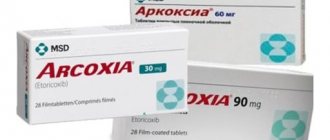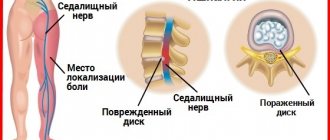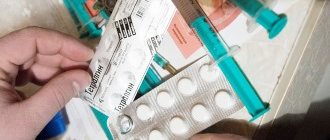Pain is one of the physical manifestations that accompany a person throughout his life. It is characterized by formation due to a bruise or injury, spasm in muscles and blood vessels, irritation in nerve endings and also due to many different factors. Currently, people use a variety of medications to combat pain. In this article we will talk about toothache (odontalgia) and a medicine such as “Next”. We will tell you whether this medicine helps get rid of toothache.
Indications for use
- headache (including migraine);
- toothache;
- algodismenorrhea (painful menstruation);
- neuralgia;
- myalgia;
- back pain;
- joint pain, pain syndrome in inflammatory and degenerative diseases of the musculoskeletal system;
- pain from bruises, sprains, dislocations, fractures;
- post-traumatic and postoperative pain syndrome;
- febrile conditions (including flu and colds).
Next - what kind of drug?
The drug Next belongs to the group of combined drugs with analgesic and anti-inflammatory effects. It is produced (Russia), costs 240 rubles for 20 tablets. The composition consists of two active substances - paracetamol (200 mg), ibuprofen (400 mg). The composition also contains auxiliary components - cellulose, hyprolose, calcium dihydrogen phosphate, magnesium stearate, dyes and others. The tablets are red, convex on both sides, white on the cut.
Next Uno Express capsules, which contain only 200 mg of ibuprofen, are also sold in pharmacies and belong to the group of monocomponent NSAIDs.
Next, as a complex remedy, acts in two directions at once, which gives a more pronounced effect. Paracetamol provides antipyretic and analgesic effects. For the most part, it affects the thermoregulatory centers in the hypothalamus.
As a result, there is a loss of excess heat, which is characteristic of febrile conditions. The temperature decreases with vasodilation and increased blood flow in the periphery. Paracetamol does not have an anti-inflammatory effect, and the lack of effect on the production of prostaglandins eliminates the following negative phenomena:
- gastrointestinal irritation;
- water and sodium retention;
- the appearance of edema.
Ibuprofen provides not only an analgesic and antipyretic effect, but also a strong anti-inflammatory effect. As a non-selective COX enzyme blocker, ibuprofen reduces the synthesis of prostaglandins, so pain is reduced, as is the inflammatory process. The maximum concentration of substances in the blood is reached after approximately 40-45 minutes.
Contraindications
- hypersensitivity to the components of the drug;
- erosive and ulcerative diseases of the gastrointestinal tract (in the acute phase), gastrointestinal bleeding;
- severe liver and/or kidney failure;
- bleeding disorders (hemophilia, prolongation of bleeding time, bleeding tendency, hemorrhagic diathesis);
- complete or incomplete combination of bronchial asthma, recurrent nasal polyposis and paranasal sinuses and intolerance to acetylsalicylic acid or other non-steroidal anti-inflammatory drugs, incl. in the anamnesis;
- condition after coronary artery bypass surgery;
- confirmed hyperkalemia;
- deficiency of glucose-6-phosphate dehydrogenase;
- pregnancy (III trimester);
- children's age up to 12 years.
With caution: chronic heart failure; viral hepatitis, alcoholic liver damage, liver and/or kidney failure of moderate and mild severity, benign hyperbilirubinemia (Gilbert, Dubin-Johnson and Rotor syndrome), liver cirrhosis with portal hypertension, nephrotic syndrome; diabetes mellitus, peripheral arterial disease, peptic ulcer of the stomach and duodenum (history); gastritis, enteritis, colitis; bronchial asthma, bronchospasm; elderly age; pregnancy (I and II trimesters - use is possible only as prescribed by a doctor in cases where the potential benefit outweighs the possible risk), lactation period (if it is necessary to use the drug during breastfeeding, breastfeeding should be stopped).
Medication instructions
How long to take the drug, what its dosage is, is determined by a specialist. But, due to the adverse effects of ibuprofen on the gastrointestinal tract, the course should be as short as possible. Take Next as an antipyretic for up to 3 days, and as an analgesic for up to 5 days. Features of treatment and dosage are as follows:
WE RECOMMEND THE ARTICLE!
Nise is a highly effective drug for any type of pain. Read more >>
- taken orally, with water, only after meals;
- dose for children from 12 years to 18 years - 1 tablet twice a day;
- dose for adults - up to 3 tablets/day, one at a time;
- The maximum dosage per day is 3 tablets.
If the recommended amount of the drug is exceeded, there is a risk of overdose. It manifests itself with such unpleasant symptoms as tinnitus, increased heart rate, vomiting and confusion. Overexcitement or lethargy, increased urine output and severe headaches are also possible. In severe cases, acute renal failure develops. Treatment is carried out only in a medical institution, it is symptomatic in combination with forced diuresis, taking sorbents and alkaline drinks.
special instructions
The simultaneous use of the drug with other drugs containing paracetamol and/or non-steroidal anti-inflammatory drugs should be avoided. When using the drug for more than 5-7 days, peripheral blood counts and the functional state of the liver should be monitored.
Paracetamol distorts the results of laboratory tests of glucose and uric acid in blood plasma. When symptoms of NSAID gastropathy appear, careful monitoring is indicated, including esophagogastroduodenoscopy, a blood test to determine hemoglobin and hematocrit, and a stool test for occult blood. If it is necessary to determine 17-ketosteroids, the drug should be discontinued 48 hours before the study.
While taking the drug, patients should refrain from all activities that require increased attention, rapid mental and motor reactions. During the treatment period, drinking alcohol-containing drinks is not recommended.
Side effects
The most common side effects are from the gastrointestinal tract. Taking pills often causes abdominal pain and nausea, heartburn and loss of appetite. Even one tablet can cause constipation or diarrhea, and bloating. When taking a course, there is a risk of developing pancreatitis, aphthous stomatitis, and gum damage.
During treatment, headaches and dizziness may appear, and some patients experience sleep disturbances.
In some cases, depressive states are observed, blood pressure rises, shortness of breath and tachycardia develop.
The drug can also cause bronchospasm, changes in taste and hearing, and blurred vision. Acute cystitis and polyuria, nephrotic syndrome are sometimes observed. Allergic reactions are also common - among them are cutaneous forms and angioedema, Lyell's syndrome. Possible changes in blood composition in the form of leukopenia, neutropenia, thrombocytopenia.
Painkillers Next for menstruation, pain pills for menstrual pain
Menstruation is a unique natural mechanism for the regeneration of the uterine mucosa, which can hardly be called a “gift of nature.” The onset of menstrual bleeding completes the next cycle of ovulatory activity and is an indicator of the absence of conception in the previous time period. Many women experience discomfort in the lower abdomen during menstruation. There is no need to worry about this, as in most cases this is quite normal. After all, during menstruation, the inner layer of the uterus (endometrium) separates, which is shed every month if the woman is not pregnant. The uterus, getting rid of the endometrium, contracts, the released prostaglandins irritate pain receptors, all this causes discomfort in the abdomen.
Legal aspect
The legislation of the Russian Federation does not provide for the issuance of a certificate of temporary incapacity for work during menstruation. Having quickly looked through the list of conditions for which sick leave is issued, we do not find even a hint of menstruation there. Menstruation itself, undoubtedly, is not a diagnosis, but is a physiological process for the female body. But as for menstrual pain, which we are talking about, then everything is different. If pain interferes with full work activity, then this may already be an alarming signal. Experts call pain during menstruation the term “dysmenorrhea.” Dysmenorrhea can also be observed in healthy women, and at the same time can be a symptom of some gynecological diseases. Algodysmenorrhea (dysmenorrhea) is a pain syndrome accompanying endometrial rejection, caused by a violation of neurovegetative, behavioral and metabolic functions and in some cases accompanied by temporary disability and negative changes in a psychosomatic state. Dysmenorrhea can be caused by various reasons: hormonal imbalance, disorders of the structures or functions of the ovaries or uterus, endometriosis, psycho-emotional stress. An accurate diagnosis is made by a doctor. Algomenorrhea is often characterized by the presence of not only pain in the lower abdomen, but also some other unpleasant symptoms:
- general weakness, dizziness, fainting;
- temperature increase;
- increase or decrease in blood pressure;
- pastiness and swelling of the legs;
- situational emotional and mental lability, sleep disorders.
dry mouth, flatulence, nausea, vomiting, loss of appetite;
Severe pain during menstruation occurs with the following diseases:
- Endometriosis
- Adenomyosis
- Ovarian cyst
- Uterine fibroids
- Uterine polyps
Some facts about menstruation
According to a study conducted by the international medical resource Counsel & Heal*, every fifth representative of the fair sex experiences severe pain during menstruation.
As a rule, relief of the condition is achieved by uncontrolled taking pills for abstract abdominal pain, which are not always indicated for menstrual pain.
Global trends in respect for women's periodic pain are clearly confirmed by the introduction of the possibility of “expected short-term illness” in employment contracts in Japan, Indonesia, Taiwan and Canada. The number of countries recognizing women's right to peace during menstruation is growing steadily.
It’s worth returning to the pain, or rather, not returning to it again!
Once you understand the nature of menstrual pain, you can begin to take active steps to relieve it.
Therapy for algodismenorrhea differs from the treatment of many painful conditions in that it cannot be aimed at eliminating the source of pain. The main task is to treat existing gynecological diseases (if any), eliminate provoking factors and, of course, relieve pain; it is advisable to choose a drug that meets the following criteria:
- high speed of action;
- simplicity of the dosage and administration regimen;
- preference for the “per os” method over the injection method;
- minimal number of side effects.
A modern combination drug, Next®, can cope with this task.
Next® is a scientifically based and verified balance of a centrally acting analgesic and a non-steroidal anti-inflammatory drug.
The targeted action of Next® is concentrated in each tablet and helps:
- relieve menstrual pain in the lower abdomen;
- eliminate radiating pain during menstruation, spreading to the lumbar spine, legs and pelvic organs;
- normalize body temperature, helping to improve the general condition of a woman.
Following a diet can also help ease period pain. It is usually recommended to exclude alcoholic drinks and smoking, limit the amount of fried, salty and spicy foods, and flour products.
P.S
Women's nature is specific and unique; having the happiness of giving birth to children, many women are forced to bear the burden of pain. Thanks to the rapid progress of science and technology, pharmaceuticals are able to protect the weaker sex from the debilitating manifestations of algodismenorrhea.
Let Next® come to the rescue! Don't leave any chance for stomach pain in these difficult days!
* https://www.counselheal.com/articles/9351/20140414/menstrual-cramps-make-women-dumber.htm
Source: https://nextpainkiller.ru/vse-o-boli/menstrualnaya-bol/




